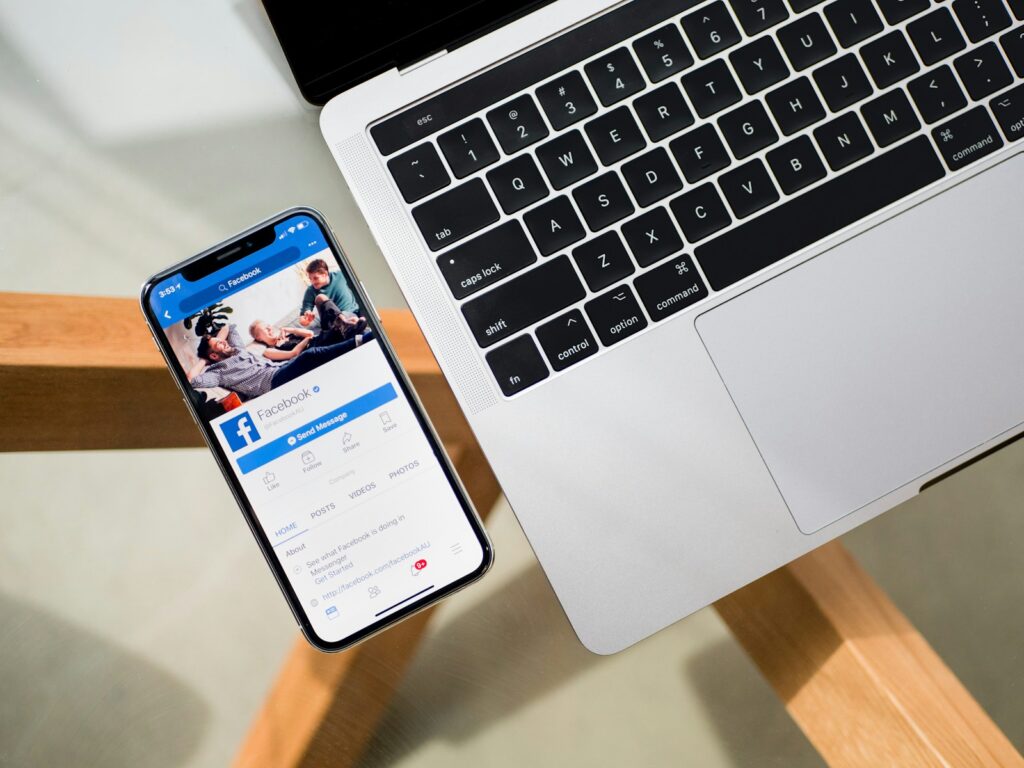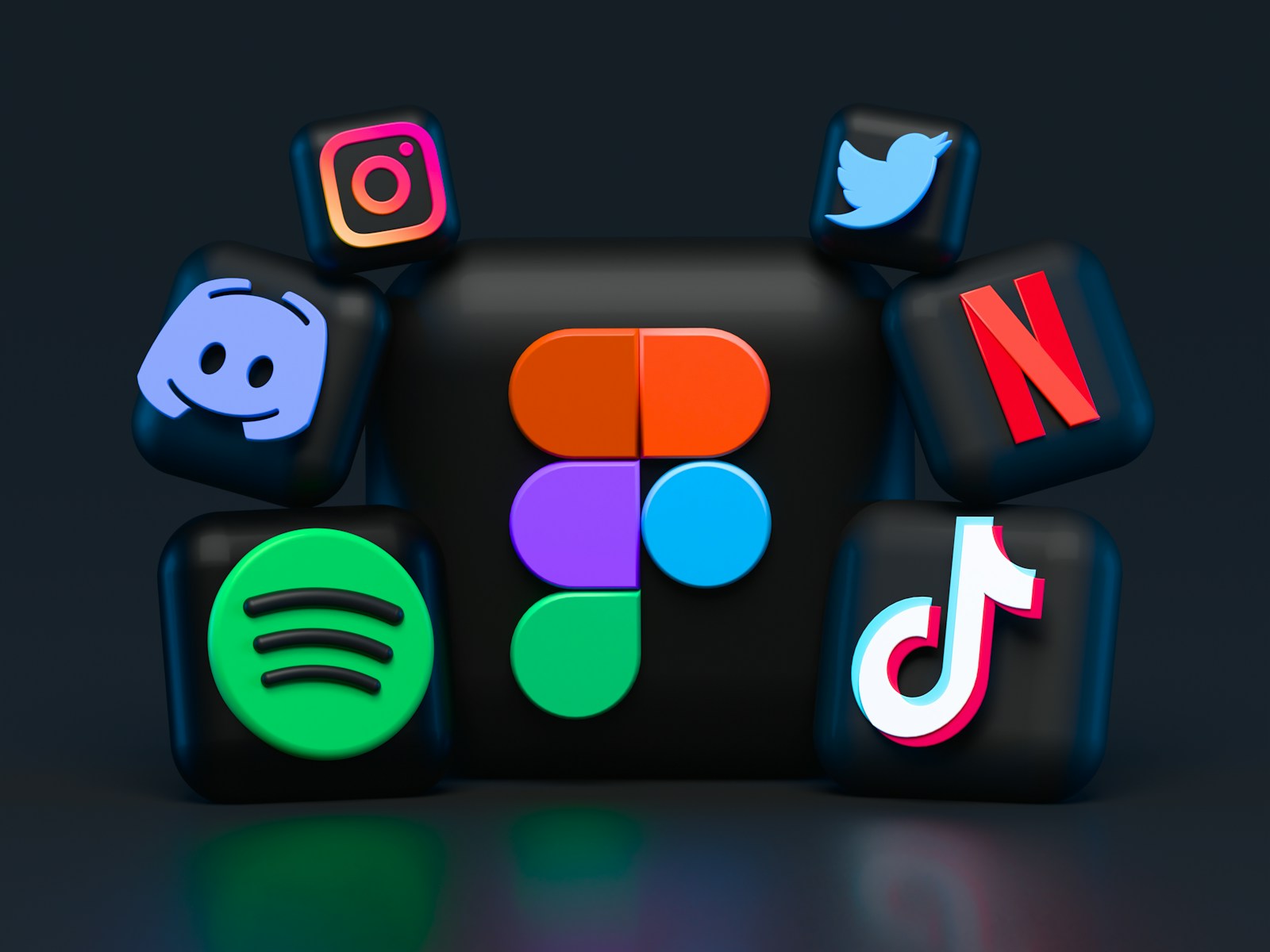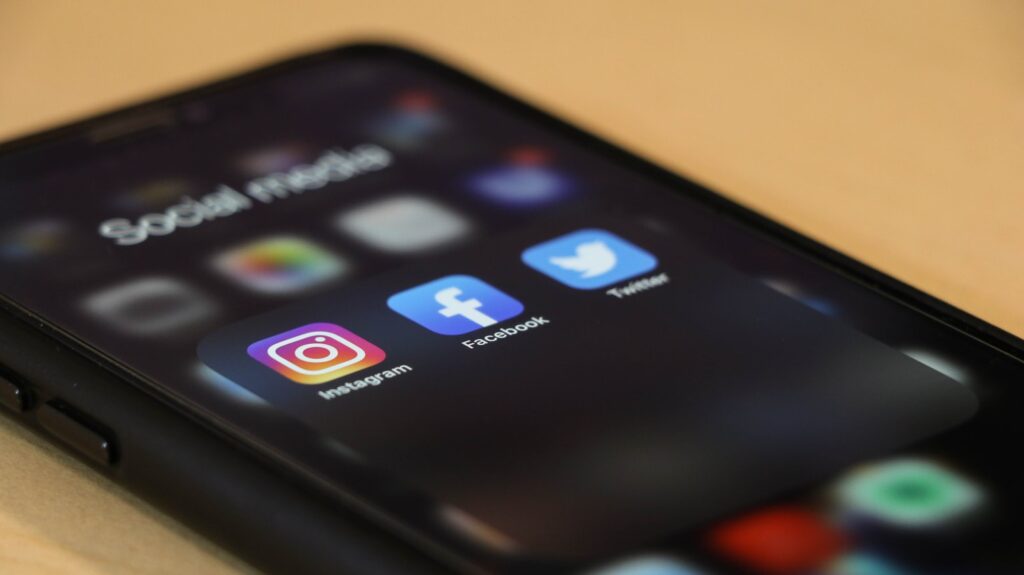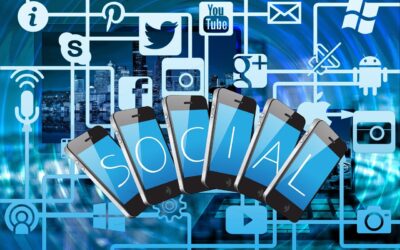Have you ever wondered why is social media good? Or if it's actually bad?
Social media gets a bad rap. Critics focus on cyberbullying, addiction, feeling disconnected, and mental health concerns. But here’s a statistic that might surprise you: According to the Pew Research Center, 68% of young adults believe social media helps them stay informed about current events, while 54% report feeling that they're better communicators to friends through these platforms.
While the negative aspects of social media usage deserve attention, the conversation shouldn’t end there. Social media platforms offer remarkable benefits that transform how we connect, learn, and grow our businesses. From strengthening relationships across continents to providing lifelines for mental health support, these digital spaces create opportunities that didn’t exist a generation ago.
This comprehensive guide explores why social media is good for individuals, businesses, and society. We’ll examine real data, share concrete examples, and provide a balanced perspective on both the advantages and challenges of our interconnected digital world.
Enhancing Connectivity and Relationships Through Social Media Sites
Social media platforms excel at one fundamental human need: connection. These digital spaces break down geographical barriers and time zones, allowing people to maintain relationships that might otherwise fade and to form new connections that would not be possible otherwise.
While online connections are valuable, in-person networks are vital for fostering genuine social interactions and strengthening social bonds. Face-to-face connections contribute positively to mental health and social well-being, complementing the benefits of digital engagement.
Looking for an experienced Wordpress Development company?
Genuine social interactions remain an integral part of a healthy social experience, both online and offline.
Strengthening Family Bonds
Families scattered across different states or countries can share daily moments through photos, videos, and messages. Grandparents watch grandchildren grow up through Instagram stories. Military families deployed overseas stay connected through video calls and social media updates. The 54% of users who report feeling more connected to friends represents millions of strengthened relationships.
Building Professional Networks
LinkedIn has revolutionized professional networking, allowing career advancement through digital connections. Marketing managers can share industry insights, learn from peers, and discover job opportunities without attending expensive conferences. Young professionals build valuable mentorships with industry leaders they might never meet otherwise.
Supporting Long-Distance Relationships
Social media platforms provide the infrastructure for meaningful long-distance relationships. Couples separated by work or education maintain intimacy through constant communication. Friends who move to different cities stay updated on each other's lives, creating a foundation for reconnection when they meet again.

Photo by Timothy Hales Bennett on Unsplash
Positive Effects of Promoting Small Businesses Through Social Media
Small business owners have discovered that social media sites offer unprecedented opportunities for growth. These platforms level the playing field between local businesses and large corporations, providing access to audiences that traditional advertising couldn't reach.
Cost-Effective Marketing Solutions
Traditional advertising required substantial budgets for radio, television, or print campaigns. Social media marketing allows businesses to reach targeted audiences for a fraction of those costs. A local bakery can showcase daily specials to neighborhood customers, while an online boutique can reach fashion enthusiasts nationwide.
Research shows that 40% of consumers use social media to discover new brands and products. This organic discovery process creates authentic connections between businesses and customers. When users share positive experiences, they become brand ambassadors, extending reach far beyond paid advertising.
Education and Awareness For Young People Through Social Media
Social media platforms serve as powerful educational tools, democratizing access to information and raising awareness about important social issues. These digital spaces create learning opportunities that extend far beyond traditional classrooms, including the availability and accessibility of online courses on both social media and educational platforms.
In more general terms, social media has transformed how people access information and engage with important issues, making education and awareness more inclusive and far-reaching.
Accessible Learning Opportunities
Educational content on social media takes many forms. YouTube hosts millions of instructional videos covering everything from basic cooking techniques to advanced programming languages. LinkedIn Learning and similar platforms offer professional development courses. Even short-form content on TikTok can teach valuable skills or share historical facts.
Young people particularly benefit from this accessible education model. Students can find explanations for complex concepts, watch demonstrations of scientific experiments, and access supplementary materials that enhance their formal education.
Social Awareness Campaigns
Social media's viral nature makes it an effective tool for raising awareness about social causes. Campaigns addressing climate change, social justice, and public health reach audiences that traditional media might not engage. The speed at which information spreads allows urgent issues to gain attention quickly.
For example, environmental organizations use Instagram to share striking visuals of climate change impacts, while health organizations leverage Facebook to disseminate accurate medical information during public health crises. These campaigns often inspire real-world action, from volunteer participation to policy changes.
Community Building Around Shared Interests
Social media platforms enable like-minded individuals to form communities around shared interests or challenges. Photography enthusiasts share techniques and feedback. Fitness communities provide motivation and accountability. Academic groups collaborate on research projects across institutions.
These communities often extend beyond casual interaction, creating support networks that provide genuine value to members' personal and professional lives.
Mental Health and Well-being Benefits
While discussions about social media often focus on negative mental health impacts, research reveals significant positive effects when these platforms are used mindfully and purposefully. Social media fosters peer connection, especially for young people and marginalized groups, by providing spaces for friendships, social support, and identity development.
Additionally, social media support networks can help individuals navigate tough times by offering encouragement to find self-worth and resources during periods of stress or adversity.
Finding Support Networks
Social media platforms connect individuals facing similar challenges, creating support networks that might not exist in their immediate physical communities. People dealing with rare medical conditions find others who understand their experiences. New parents share advice and encouragement. Those recovering from addiction find accountability partners and success stories.
These connections combat isolation and provide practical support that improves daily life. The sense of belonging that emerges from these communities contributes to better mental health outcomes and increased resilience during difficult periods.
Reducing Loneliness and Isolation
Particularly during events like the COVID-19 pandemic, social media platforms provided crucial connections for people experiencing physical isolation. Elderly individuals maintained relationships with family members. Students continued social interactions with classmates. Remote workers found virtual communities that replaced office social interactions.
Studies suggest that meaningful social media interactions can reduce feelings of loneliness and improve overall well-being. The key lies in active engagement rather than passive consumption of content.
Building Communication Skills
Regular social media use can enhance communication skills, with 60% of users reporting improved interactions. Writing posts, responding to comments, and engaging in discussions help people articulate thoughts more clearly. Visual storytelling through photos and videos develops creative communication abilities.
Young adults particularly benefit from practicing communication in lower-stakes social media environments before applying these skills in professional settings. The feedback loop created by likes, comments, and shares provides immediate insight into communication effectiveness.
Healthy Social Media Use Guidelines
To maximize mental health benefits while minimizing risks, consider these approaches:
- Follow accounts that inspire and educate rather than those that consistently trigger negative emotions
- Engage actively with content rather than scrolling passively
- Set specific time limits for social media use
- Use privacy settings to create positive, supportive online environments
- Take regular breaks from social media to maintain perspective
Top 5 Pros of Social Media
1. Enhanced Connectivity and Communication
Social media platforms break down geographical barriers, allowing meaningful relationships to flourish across distances. Families stay connected, friendships endure major life transitions, and professional networks expand globally.
2. Business Growth and Marketing Opportunities
Small businesses gain access to targeted audiences at affordable costs. The 45% increase in customer attraction for businesses using social media marketing represents real economic impact for entrepreneurs and established companies alike.
3. Educational Resources and Awareness
Free access to educational content, skill development opportunities, and awareness campaigns creates learning possibilities that traditional systems couldn't provide. Complex topics become accessible through visual and interactive content.
4. Mental Health Support and Community Building
Support groups, advocacy communities, and shared interest networks provide belonging and practical assistance. Like-minded people find each other regardless of physical location, creating powerful support systems.
5. Real-Time Information and News Access
Current events, emergency information, and important updates spread quickly through social media networks. This immediate access to information can be crucial during crises or rapidly developing situations.
Top 5 Cons of Social Media
1. Addiction and Time Management Issues
Excessive social media use can interfere with work, relationships, and personal development. The designed engagement features can create compulsive usage patterns that negatively impact daily life productivity.
2. Cyberbullying and Online Harassment
The anonymity and distance provided by digital platforms can enable harassment behaviors. Young people particularly face risks from cyberbullying, which can have serious mental health consequences.
3. Privacy Concerns and Data Security
Personal information shared on social media platforms may be accessed by unauthorized parties. Data breaches, identity theft, and unwanted surveillance represent ongoing security challenges.
4. Misinformation and False News Spread
The rapid sharing of information can include inaccurate or deliberately false content. Misinformation about health, politics, or social issues can have real-world consequences when people make decisions based on false information.
5. Negative Impact on Body Image and Self-Esteem
Constant exposure to curated, filtered content can create unrealistic expectations about appearance and lifestyle, leading to poor mental health for some social media users. Comparison with others' highlight reels can contribute to low self-esteem and poor body image, particularly among young adults.
Social Media Usage and Health Outcomes
Research increasingly shows connections between social media use patterns and various health-related outcomes. Findings suggest that how individuals engage with social media can influence social well-being, positive mental health, and self-rated health. According to research scientist Mesfin Bakalu at Harvard, a recent study examined three health-related outcomes—social well-being, positive mental health, and self-rated health—and found that mindful, routine social media use is positively associated with these metrics. Advances in technology have enabled researchers to better study the impact of social media on health. Understanding these relationships helps users make informed decisions about their digital habits.
Positive Health Outcomes
Studies indicate that routine social media use, when approached mindfully, can contribute to positive mental health outcomes. Social connections formed online often translate into real-life support systems. Health-focused communities share practical advice about physical activity, nutrition, and wellness practices.
The key factor appears to be the quality of interactions rather than just the frequency of use. Users who engage in meaningful conversations, share genuine experiences, and maintain authentic connections report better health outcomes than those who primarily consume content passively.
Physical Activity and Social Media
Fitness communities on social media platforms encourage physical activity through challenges, progress sharing, and accountability partnerships. Users document workout routines, share healthy recipes, and celebrate fitness milestones, creating positive peer pressure that supports active lifestyles.
Problematic Internet and Social Media Use
However, unhealthy social media use patterns can contribute to negative health outcomes. Excessive use that interferes with sleep, exercise, or face-to-face relationships may indicate problematic usage. Signs include spending more time online than intended, feeling anxious when unable to access social media, and neglecting offline responsibilities.
Young people may be particularly vulnerable to these patterns, as their identity development occurs partly through online interactions. Parents and educators play important roles in modeling healthy social media habits and discussing both benefits and risks with young adults.
The Future of Social Media and Well-Being
As artificial intelligence and new technologies reshape social media platforms, the potential for positive impact continues to expand. AI-powered tools can help users find relevant communities, filter harmful content, and maintain healthier usage patterns.
Mindful Social Media Use
The growing awareness of social media's impact has led to more intentional usage approaches. Mindful users actively choose which accounts to follow, engage with content that adds value to their lives, and regularly assess how their social media habits affect their well-being.
This shift represents a maturation in how society approaches these powerful tools. Rather than viewing social media as inherently good or bad, users increasingly recognize their agency in creating positive experiences through conscious choices.
Supporting Social Well-Being
Organizations and platform developers are increasingly focused on features that support social well-being. Tools for managing screen time, reporting harassment, and connecting with mental health resources reflect growing recognition of social media's responsibility in user welfare.
Maximizing Social Media's Positive Impact
Social media’s surprising benefits emerge most clearly when users approach these platforms with intention and awareness. Maintaining a healthy perspective is essential—focusing on connection, education, and empathy helps maximize the positive impact of social media while avoiding being overwhelmed by its negative aspects.
The connectivity that allows grandparents to watch grandchildren grow up, the business opportunities that help entrepreneurs achieve financial independence, and the support networks that provide crucial assistance during challenging times represent genuine improvements in how humans connect and support each other.
The evidence suggests that social media platforms, when used thoughtfully, enhance rather than replace traditional relationships and opportunities. A small business owner can maintain customer relationships through social media while also engaging with their local community. Young adults can develop communication skills online that improve their in-person interactions.
The 68% of young adults who stay informed through social media, the 54% who feel more connected to friends, and the 45% of businesses that attract new customers through these platforms represent millions of people whose lives have been positively impacted by digital connectivity.
For business owners looking to harness these benefits, professional guidance can make the difference between social media success and frustration. Visit Priceless Consulting to discover how expert SEO and web development services can amplify your social media efforts and create lasting business growth.
Learn More About the Benefits of Social Media
If you’re interested in diving deeper into how social media can drive personal, professional, and business growth, check out these helpful resources:
- Pew Research Center – Social Media Fact Sheet
- Sprout Social – 80+ Must-Know Social Media Marketing Statistics for 2025
- Forbes – How Social Media Is Changing Business
- HubSpot – The Ultimate Guide to Social Media Marketing
- Hootsuite – Social Media Trends 2025
- American Psychological Association – 7 Tips for Using Social Media for Mental Well-being
- Neil Patel – How Social Media Impacts SEO
- Business News Daily – Small Business Guide to Social Media
- Buffer – The Science of Social Media Podcast









